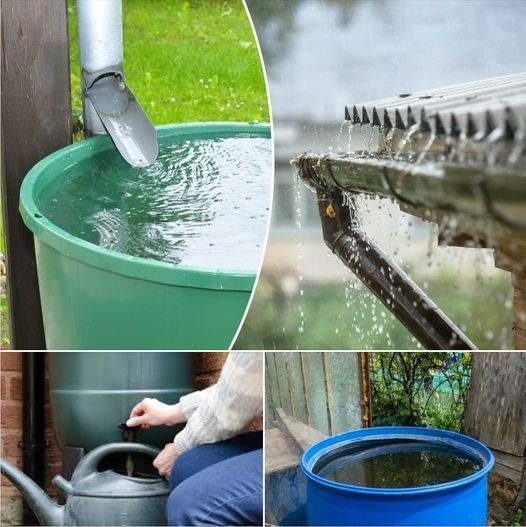ADVERTISEMENT
🚱 Be Careful When Recovering Rainwater: You Risk a Fine of €1,500 if Your Tank Is Not Compliant
As more homeowners look for eco-friendly and cost-saving ways to manage water use, rainwater collection has become an increasingly popular solution. From watering the garden to cleaning outdoor spaces, harvesting rainwater can help reduce water bills and environmental impact. But did you know that in many regions, storing rainwater comes with legal obligations?
If your rainwater tank isn’t properly installed or declared, you could face a fine of up to €1,500 — or even more in certain cases. Here’s what you need to know to stay compliant and avoid costly surprises.
🌧️ Why Collect Rainwater?
Rainwater collection is a smart move for households looking to:
- Reduce tap water consumption
- Lower utility bills
- Prepare for droughts or water restrictions
- Practice sustainable gardening
But before you install a tank or connect it to your home’s water system, there are important rules and safety considerations to follow.
⚖️ What the Law Says
While rainwater collection is legal in most countries, it’s regulated to ensure it doesn’t pose a health risk or contaminate the water supply. In many European countries, including France, Germany, and others, specific laws apply to the installation, usage, and declaration of rainwater tanks.
🛑 Common Mistakes That Could Cost You:
- Using rainwater indoors (for toilets or washing machines) without proper filtering
- Failing to declare the installation to local authorities or water agencies
- Installing non-compliant tanks or connecting them to the potable water system
- Not following local building codes or sanitation rules
❗ In France, for example, using rainwater in the home without respecting the sanitation guidelines can result in fines of up to €1,500, especially if it risks contaminating the public water system.
💧 How to Store Rainwater Safely and Legally
To avoid problems — and fines — here are key steps to follow:
1. Choose a Certified Tank
- Use a tank specifically designed for rainwater harvesting.
- It should be closed or covered to prevent mosquito breeding and debris buildup.
- The material should be UV-resistant and suitable for ou
